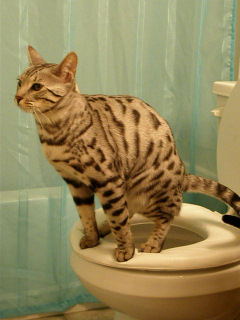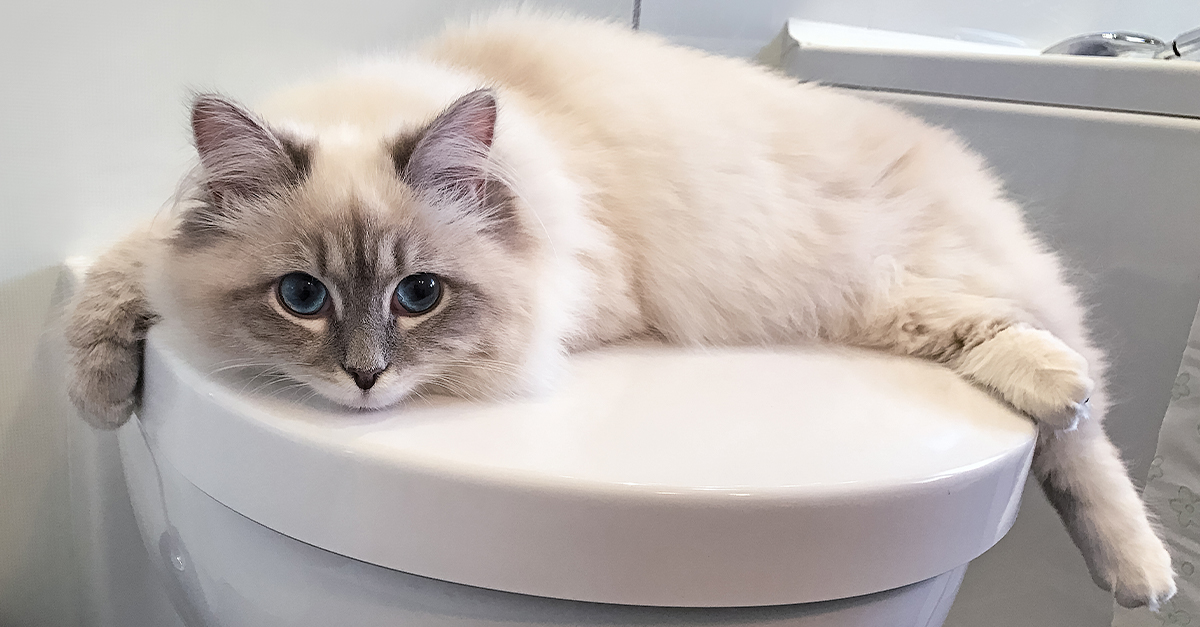Reasons You Shouldn't Flush Cat Poop Down Your Toilet - Preserve Your Plumbing System
Reasons You Shouldn't Flush Cat Poop Down Your Toilet - Preserve Your Plumbing System
Blog Article
They are making several great annotation on Can You Flush Cat Poo or Litter Down the Toilet? in general in this post followed below.

Intro
As pet cat proprietors, it's essential to be mindful of how we get rid of our feline good friends' waste. While it might seem convenient to flush pet cat poop down the bathroom, this method can have damaging repercussions for both the environment and human health.
Alternatives to Flushing
The good news is, there are safer and more liable means to take care of feline poop. Consider the complying with choices:
1. Scoop and Dispose in Trash
One of the most typical technique of disposing of pet cat poop is to scoop it right into a biodegradable bag and throw it in the trash. Make sure to use a specialized litter scoop and dispose of the waste quickly.
2. Usage Biodegradable Litter
Select eco-friendly pet cat trash made from materials such as corn or wheat. These trashes are eco-friendly and can be securely thrown away in the garbage.
3. Hide in the Yard
If you have a lawn, think about burying cat waste in a designated location far from vegetable yards and water resources. Make sure to dig deep enough to prevent contamination of groundwater.
4. Mount a Pet Waste Disposal System
Purchase an animal garbage disposal system particularly designed for pet cat waste. These systems utilize enzymes to break down the waste, lowering odor and environmental effect.
Health Risks
Along with ecological issues, purging feline waste can additionally pose health and wellness threats to humans. Feline feces might contain Toxoplasma gondii, a parasite that can trigger toxoplasmosis-- a possibly extreme illness, especially for expecting ladies and people with damaged body immune systems.
Ecological Impact
Purging feline poop introduces dangerous pathogens and bloodsuckers into the water supply, posing a substantial danger to marine communities. These pollutants can adversely influence aquatic life and concession water quality.
Final thought
Accountable family pet possession expands beyond providing food and sanctuary-- it likewise entails appropriate waste monitoring. By refraining from purging cat poop down the toilet and opting for alternate disposal methods, we can minimize our ecological footprint and shield human health.
Why You Should Never Flush Cat Poop Down the Toilet
A rose by any other name might smell as sweet, but not all poop is created equal. Toilets, and our sewage systems, are designed for human excrement, not animal waste. It might seem like it couldn’t hurt to toss cat feces into the loo, but it’s not a good idea to flush cat poop in the toilet.
First and foremost, assuming your cat uses a litter box, any waste is going to have litter on it. And even the smallest amount of litter can wreak havoc on plumbing.
Over time, small amounts build up, filling up your septic system. Most litter sold today is clumping; it is made from a type of clay that hardens when it gets wet. Ever tried to scrape old clumps from the bottom of a litter box? You know just how cement-hard it can get!
Now imagine just a small clump of that stuck in your pipes. A simple de-clogger like Drano isn’t going to cut it. And that means it’s going to cost you big time to fix it.
Parasitic Contamination
Believe it or not, your healthy kitty may be harboring a nasty parasite. Only cats excrete Toxoplasma in their feces. Yet it rarely causes serious health issues in the cats that are infected. Most people will be fine too if infected. Only pregnant women and people with compromised immune systems are at risk. (If you’ve ever heard how women who are expecting are excused from litter cleaning duty, Toxoplasma is why.)
But other animals may have a problem if infected with the parasite. And human water treatment systems aren’t designed to handle it. As a result, the systems don’t remove the parasite before discharging wastewater into local waterways. Fish, shellfish, and other marine life — otters in particular — are susceptible to toxoplasma. If exposed, most will end up with brain damage and many will die.
Depending on the species of fish, they may end up on someone’s fish hook and, ultimately on someone’s dinner plate. If that someone has a chronic illness, they’re at risk.
Skip the Toilet Training
We know there are folks out there who like to toilet train their cats. And we give them props, it takes a lot of work. But thanks to the toxoplasma, it’s not a good idea.

We hope you enjoyed our post on How to Dispose of Cat Poop and Litter Without Plastic Bags. Thanks for taking time to browse our piece of content. Enjoyed reading our blog entry? Please share it. Help another person locate it. Bless you for your time. Don't forget to check up our website back soon.
Visit Site Report this page